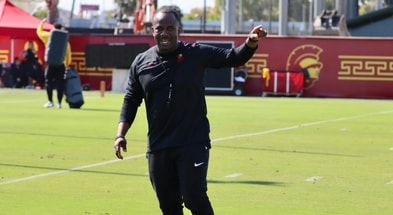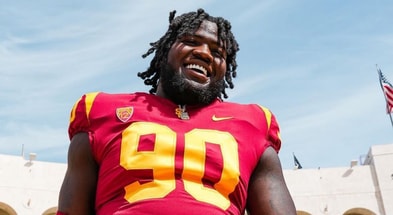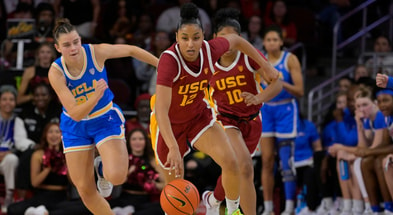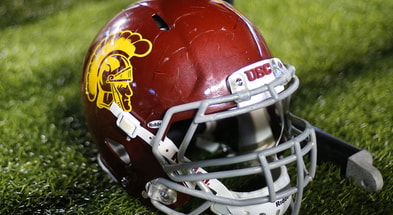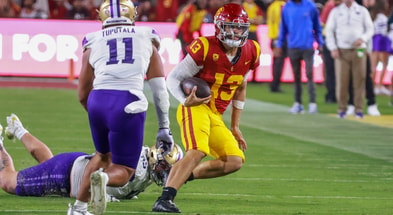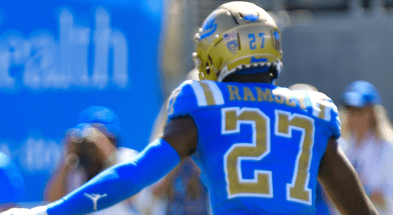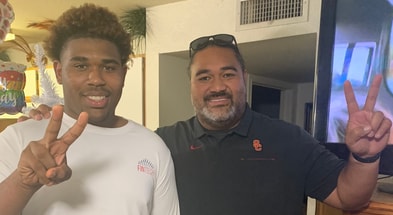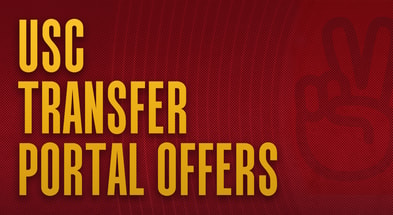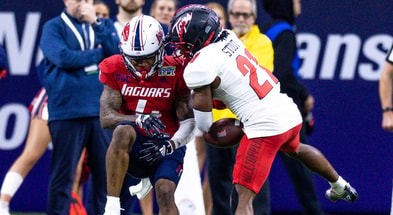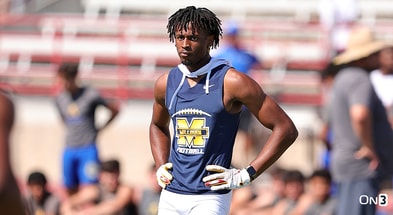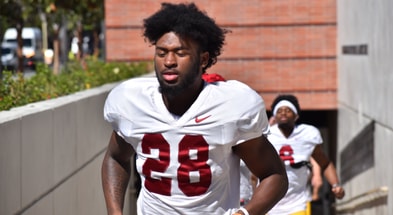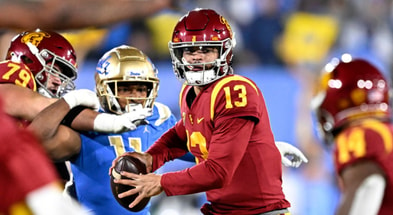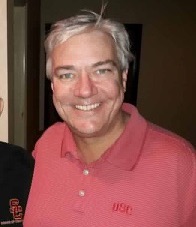Musings From Arledge: Culture, JT, and Pac-12 Network
“Culture comes first. You can have the best game plan (or strategy or tactics), the best team (or product or service), and the best players (or engineers or salespeople), and you may achieve short-term success. But if you haven’t created an underlying ecosystem or excellence, short-term success is all it will ever be.”
Michael Lombardi, Gridiron Genius: A Master Class in Winning Championships and Building Dynasties in the NFL
There are some interesting questions to be asked about USC football these days. What will Graham Harrell’s offense look like? Will there be an open QB competition? What can we expect from the new position coaches? Will the Song Girls be allowed to perform again if they show that they’re really, really sorry?
But the fundamental question – the one that matters more than any others – is whether USC is going to choose to be a serious football program. There aren’t many good things about a season like 2018. But one good thing is a season like that strips away all the illusion, all the unjustified happy talk. That talk last offseason about USC being on the verge of competing for a national title? It was never true, and now that’s plain for the whole world to see. The question is where USC goes from here.
Well, here’s your competition, Trojans:
[Former Alabama player Barrett] Jones does not have fond memories of his first practice at Alabama, painting a bleak picture of being bussed to the stadium and then the brutal heat of the field and the rigid standard of the calisthenics. He remembers the first drill where players were tested with 16 110-yard sprints. That would have been enough for lactic acidosis, but strength and conditioning coach Scott Cochran added the following caveat: You cannot bend over.
“We started running, and about number 10, somebody bent over,” Barrett Jones said. Coach Cochran said that one didn’t count. We ended up running 28 110s that day and everyone was throwing up. Coach Cochran said we never want to have our body language bending over like we are beaten.
Asked by ESPN to describe an Alabama practice, linebacker Rashaan Evans said, “You ever seen two male lions scrap for meat? That’s what it’s like.”
Why? Because as Nick Saban tells his team, “Hard practice, easy game. Easy practice, hard game.”
I know Alabama has some advantages over USC these days, like the proximity of defensive line recruits and maybe a better pharmacy. But you can’t really compare apples to apples until USC’s coaches and players take winning as seriously as Alabama does. You know, fewer group selfies during commercial breaks. The use of pads during the month of November, perhaps. In short, USC will have to take football much more seriously than they have been if they want to compete with the big boys.
One of the reasons people harp on the soft practices is because of the difficulty of developing necessary football skills without full contact. In a game, you have to be able to tackle, break tackles, block, and shed blocks at full speed and full intensity. And you can’t do what you don’t practice.
But it’s more than that. Pushing players hard, forcing them to perform at a very high level when they are exhausted and feel like they can’t continue is what gives players the mental and physical toughness to persevere and overcome when things get difficult on Saturdays.
From the beginning Belichick has been a master at developing toughness. One of his first acts as head coach was to have a hill built beside the indoor facility in Ohio to hone players’ bodies and minds alike. Much like the hard-core training for Navy SEAL candidates, the hill was a test of determination. If players can fight past exhaustion, if they can focus when they’re completely drained, well, that’s mental toughness. It’s easier to commit penalties when you’re exhausted and easier to take a play off, too. There was no fooling the hill (Today in New England, in fact, there are two hills). The point was always to be able to disqualify players who could not handle the mental challenge before they saw real action and fell short when it mattered.
Lombardi, Gridiron Genius
We’ve heard for years that other conference coaches believe USC is soft. Most of the time they don’t say this on the record. Occasionally, they do.
There isn’t much debating the issue right now. Last year, USC has a physically and mentally soft team. What does it look like when a team isn’t mentally and physically tough enough? It looks like what happened between USC and Cal last November, when USC lost at home to a mediocre Cal team with a freshman QB that had just recently lost to UCLA at home by 30. All it took was (yet another) errant snap and one botched man coverage by a corner, and the wheels came off. USC had dominated the entire first half (Cal had 30 yards of offense), but within a couple of minutes of the second half it was clear that USC was highly likely to lose the football game, even though it still had a lead, the home field, and a much better roster.
Whether USC will make the commitment necessary to develop mental and physical toughness is the key issue facing USC football. Not the X’s and O’s of the Air Raid offense.
————————-
True freshman get a pass in my book. JT Daniels was not a very effective leader last year, and he frequently wasn’t a terribly effective QB. But he was a true freshman, and that means he gets a mulligan.
But the big question around JT was always how he would handle adversity. Everybody knew he could spin a football. But when you play a high school schedule and have five D-1 offensive linemen in front of you, D-1 running backs behind you, and Amon-Ra and Bru McCoy to throw to, you don’t see much adversity.
I know the guy called his own plays at Mater Dei. I know he’s fantastic in 7-on-7. I know Jordan Palmer has a man crush on him. But, JT, if you’re a leader, if you can step into the huddle when things are starting to turn south and instill confidence in your guys, now is the time to show it. Because if you can’t, that other stuff doesn’t matter very much.
I think he will do well. I think there’s more to JT Daniels than we saw last year. There needs to be.
————————-
If rumors are accurate, the new RB coach wasn’t in love with Jordan Wilmore. Very well. Mike Jinks knows more about running backs than I do, and he certainly knows the new offensive system. But I have a feeling this is a recruiting decision that USC will come to regret for the next four years. Our guys will be facing a very angry bowling ball playing in a very physical offense at Utah. I don’t like it at all. I understand that USC often has to drop good football players to make room for all the elite prospects that want on board. But that wasn’t really the situation this year, was it? Maybe the staff is right, and maybe the guy won’t do much at Utah. But I think he will.
————————-
If you haven’t read Jon Wilner’s latest article on the Pac 12 Network, grab an air sickness bag.
I’m not going to rehash everything he said. But here’s the summary. First, the Pac 12 Network (aka The Stealth Network, since you can’t find it on your screen) is dropping viewers like crazy; it reaches one-third to one-fourth the audience that the SEC and Big 10 networks reach, and it has less subscribers than The Pursuit Channel, The Sportsman Channel, Fox Deportes and Z Living. (In fairness, of course, those channels are more dedicated to providing quality programming.) Larry Scott’s initial revenue projections were roughly as accurate as Bernie Madoff’s, and it now appears that the only people who have made money off of this Titanic of a business are Larry Scott and the interior decorators for the Pac 12’s lavish headquarters. How much has Larry Scott made, you ask? Good question. He makes $4.8 million per year. Which means that he makes more money in one year than Oregon State and UCLA have made from the Pac 12 Network in the last six. Yep, not kidding. Once you factor in the amounts many of the schools had to pay to repurchase their local TV rights, they are left with less money than it takes to hire a top-flight coordinator. And, yes, your memory is accurate: a couple of years ago, the conference presidents did choose to extend Larry Scott’s contract. Don’t get mad, USC fans; this is good news. It’s not just USC administrators that hand out bewildering contract extensions, so we are at least operating on a level playing field with our conference foes. Just not with everybody else in college football.
